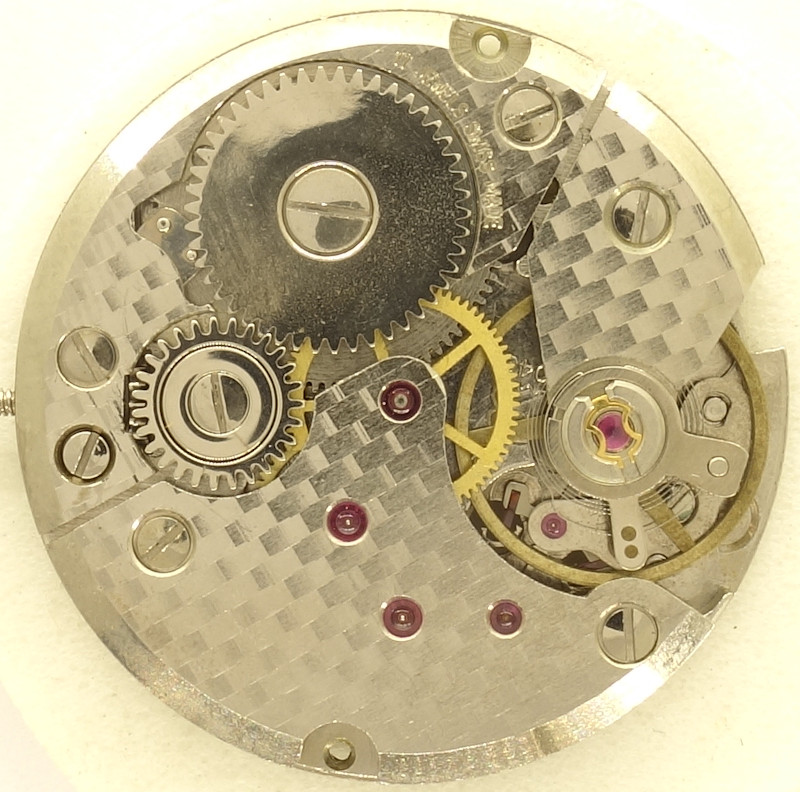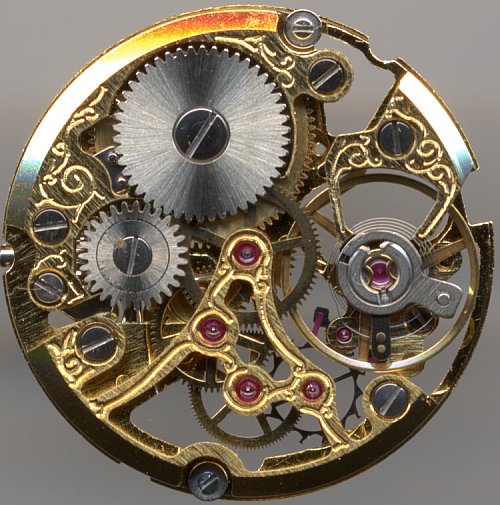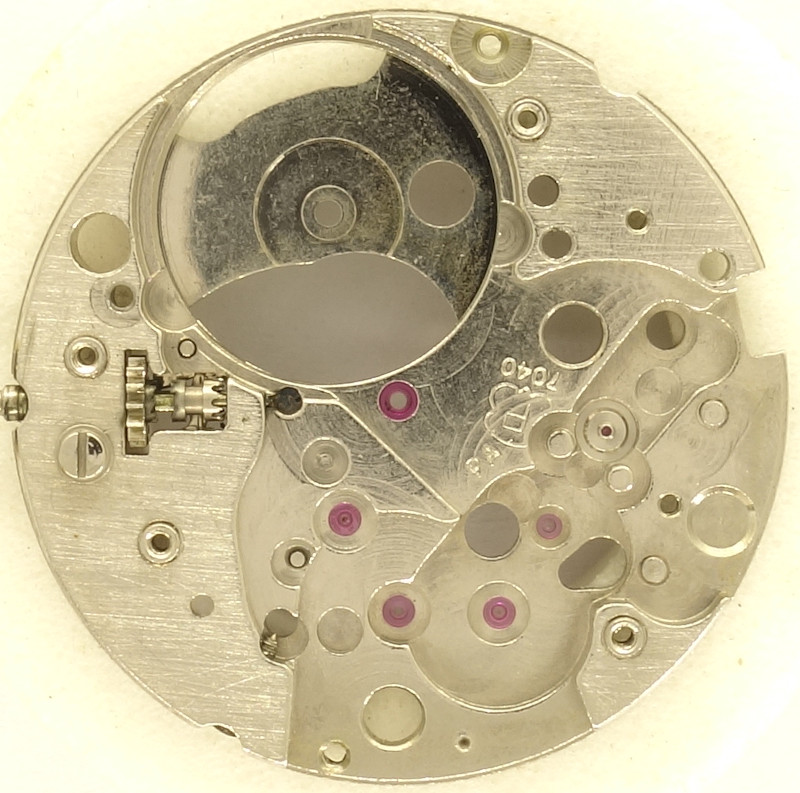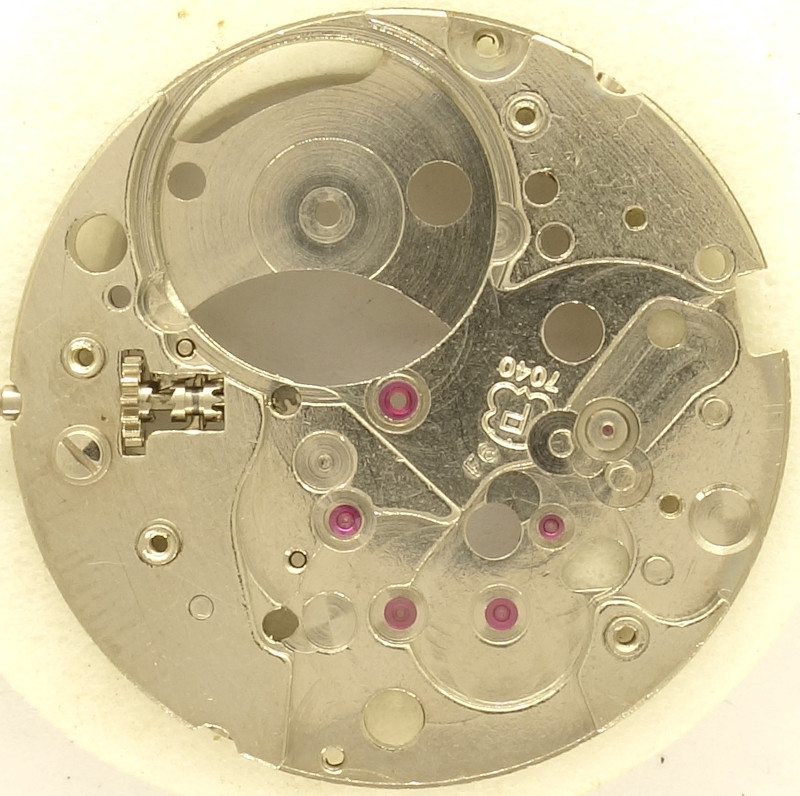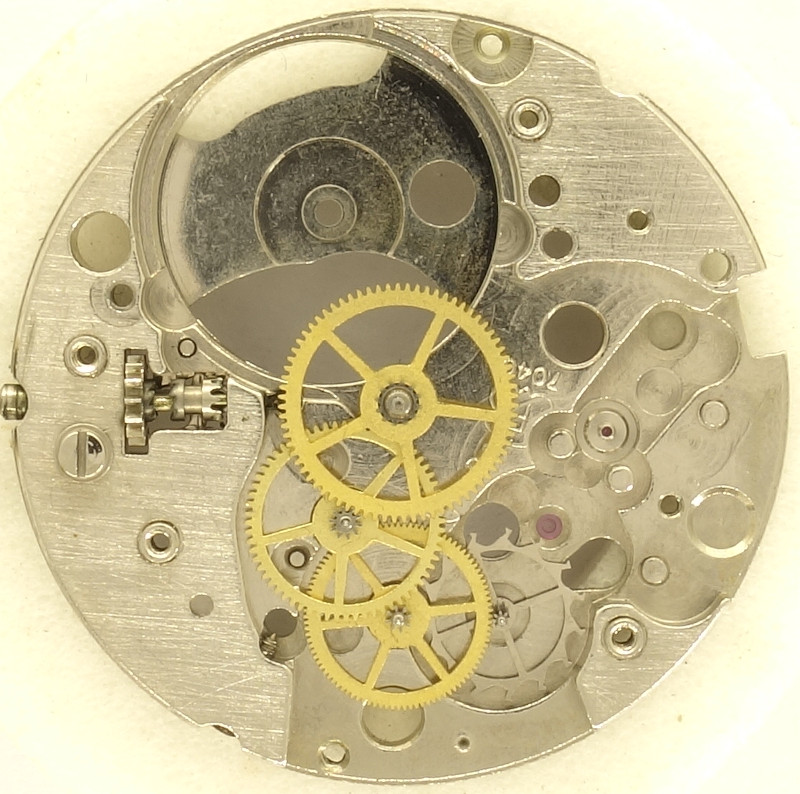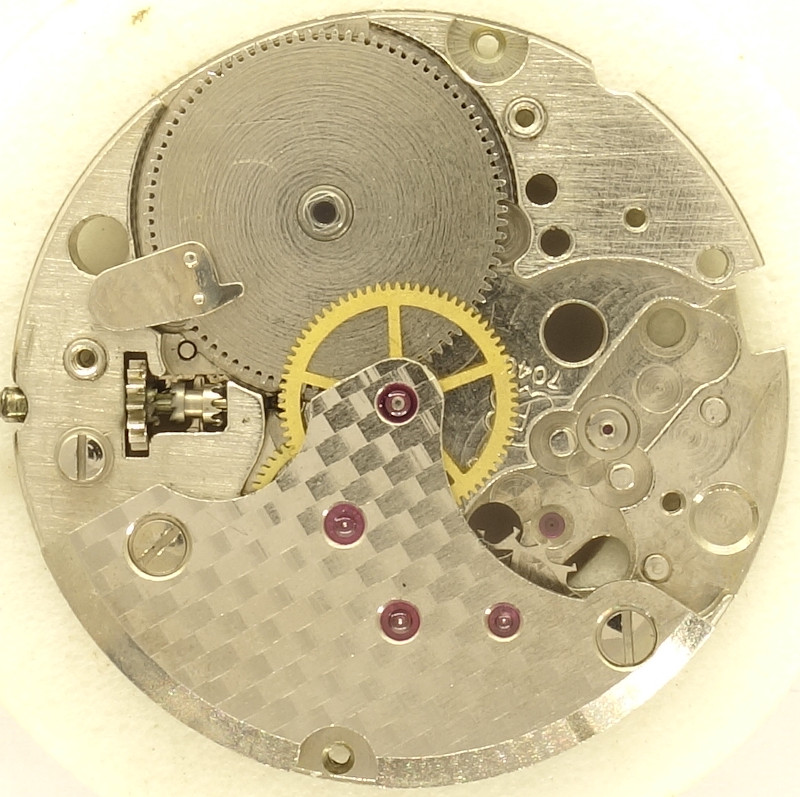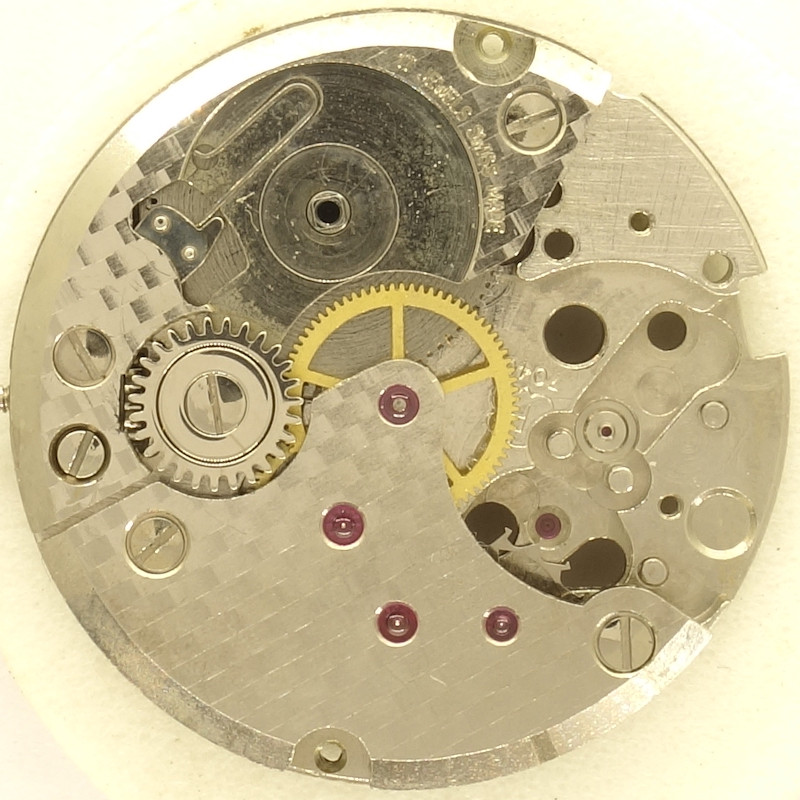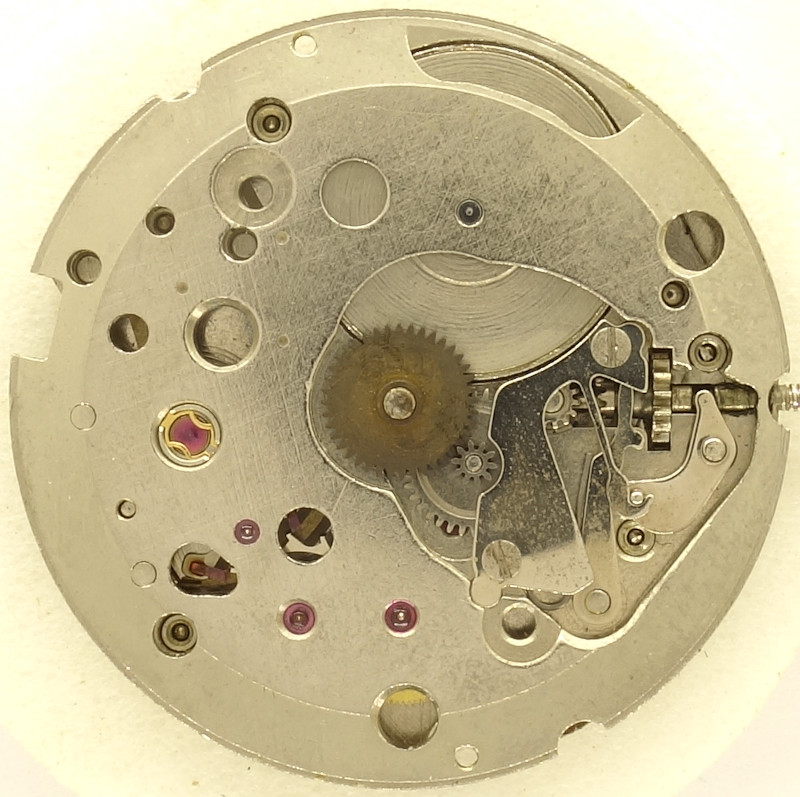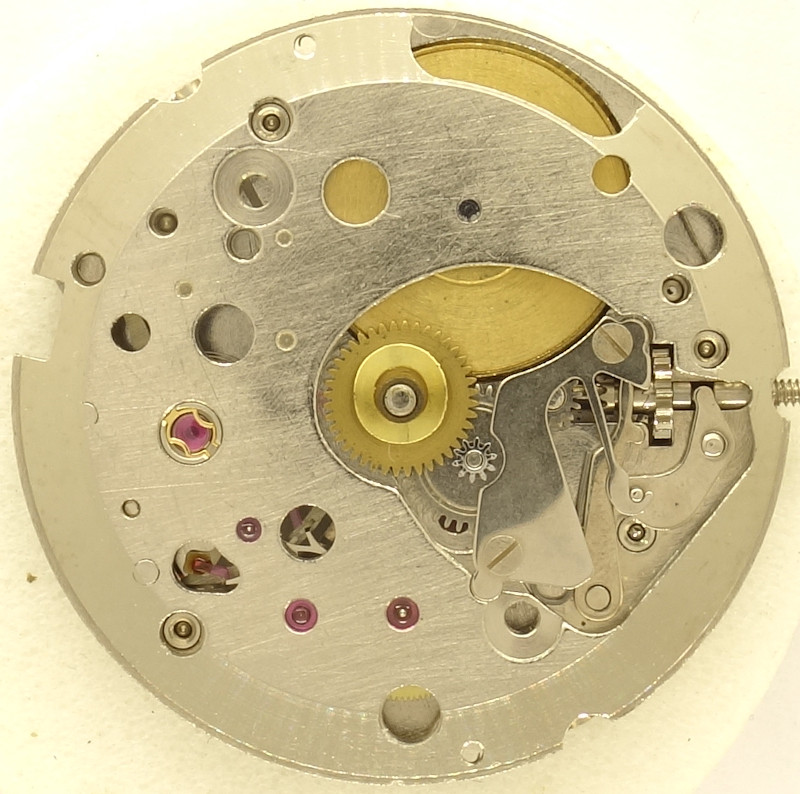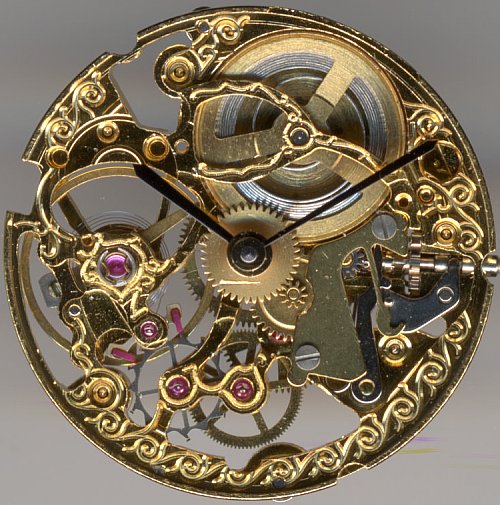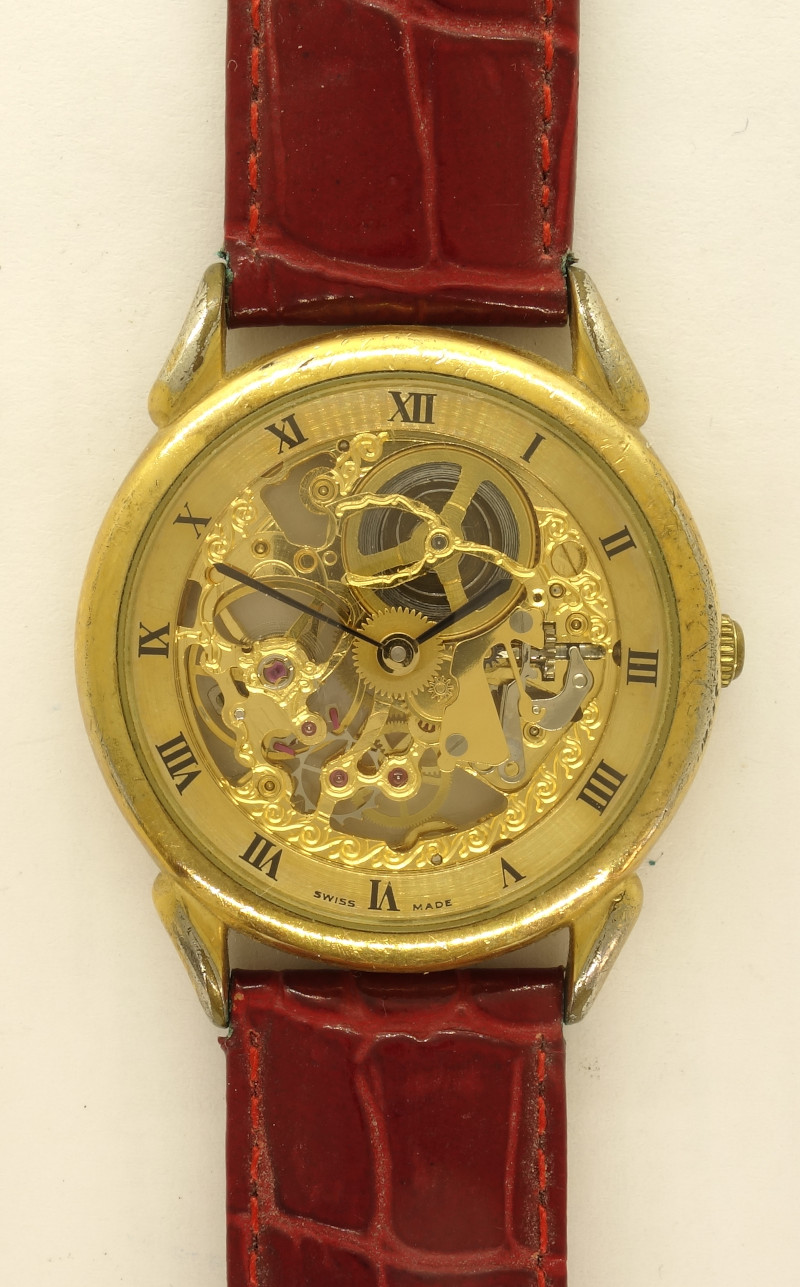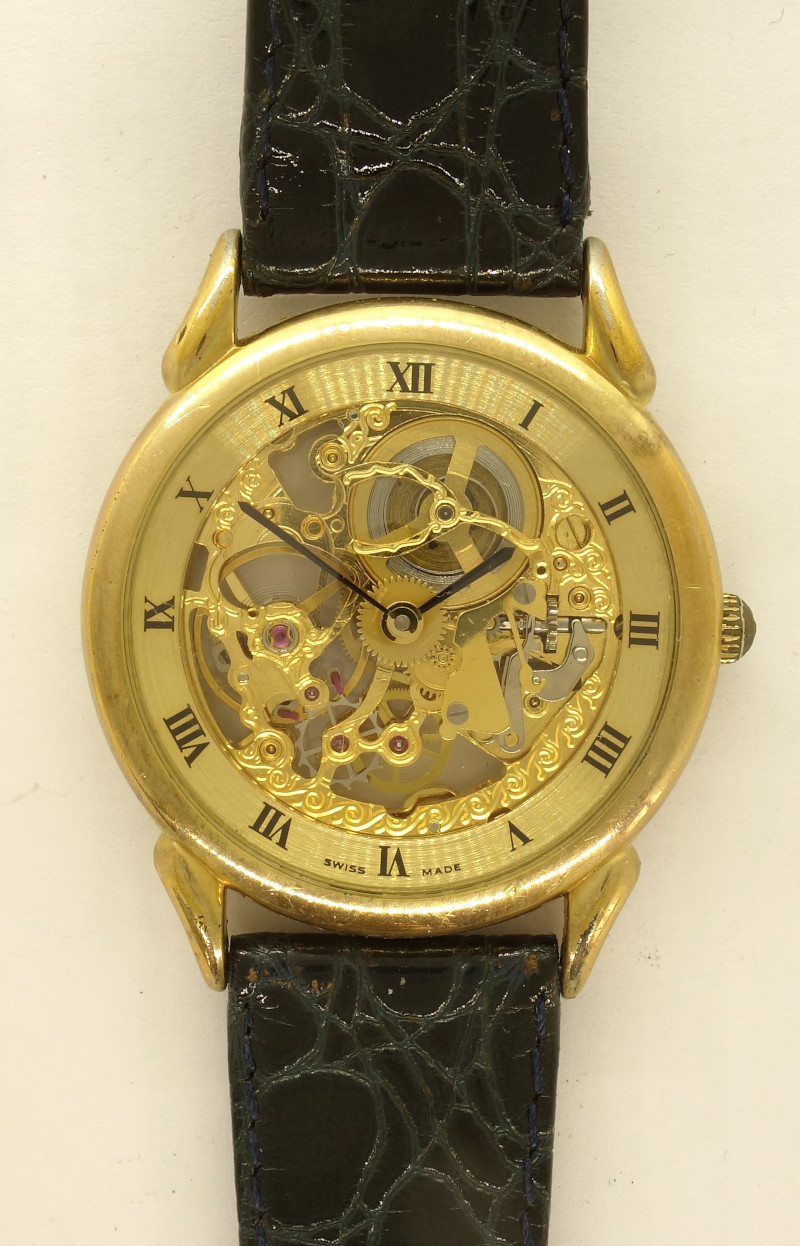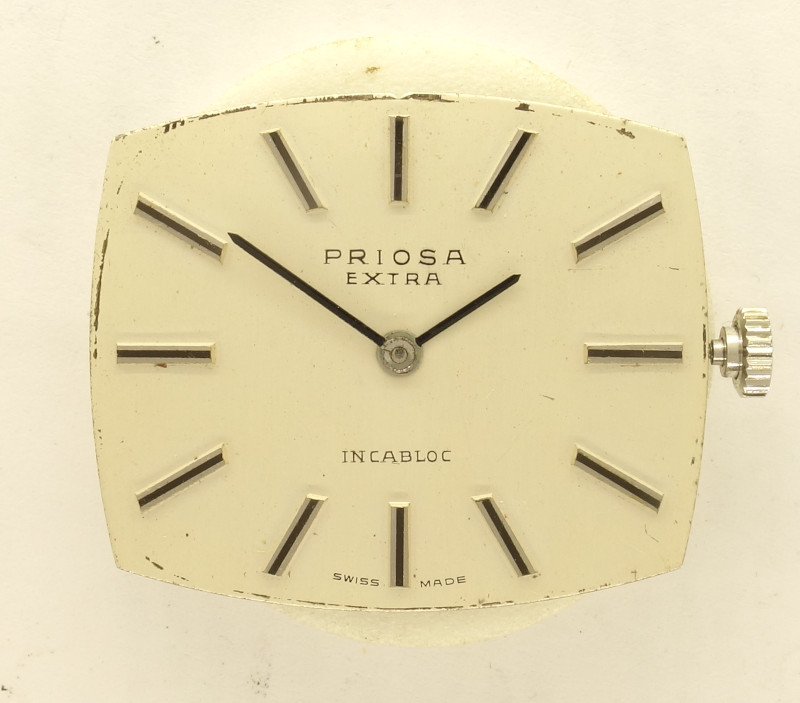Description
The Peseux 7040, which stands in the tradition of those great and often used movements like the Peseux 320, is a 10 1/2 ligne movement, which was made from 1968 until around the 1990 years and finishes together with a little later introduced caliber series 7060 the end of those movement lines.
With the ETA 7001, a relative of it, with reduced height, still lives until today.
During its building time range, it was made in different executions, with or without slanted edges, and especially in the 1980s and 1990 the skeleton versions were very popular:
In terms of quality, the movement is very well made, and of course, all important bearings, even those of the minute wheel, contain rubies.
Why on the base plate below the mainspring barrels are sometimes two holes, and sometimes only one, is unknown.
We have the classical gear train here with directly driven center minute wheel, third wheel, seconds wheel at position 6 o’clock (which could carry a decentral seconds hand if the axle was prolonged) and finally the steel escape wheel.
The swiss pallet lever movement Peseux 7040 already beats semi-fast with 21600 A/h, which can be adjusted at the hairspring key only.
The monometallic, three-leg anular balance is of course shock protected in two Incabloc bearings.
The construction of the ratchet is interesing, it consists only of a simple lever, which is beared under the ballel bridge and iterfers with two thick pins with the ratchet wheel.
The click spring is located between barrel bridge and ratchet wheel. A pretty simple, but very efficient solution.
There are no surprises on the dial side. Of course, a yoke winding system is used, and, to reduce a little height, the base plated is slanted on its outside on the dial side.
On this comparison, you see, that there are tiny differences in the execution. The reason therefor is unknwown.
The aesthetically nicest version is the skeletion one. Every time, you look at it, you are so fascinated, that you forget to read the time.
In the lab
Timegrapher result
The timegrapher result is moderately well, caused by the fact, that the tested specimen was taken off a slaughted watch and certainly not handled with great care.| horizontal positions | |||
|---|---|---|---|
| dial up | -11 s/d | 295° | 0.1ms |
| dial down | +12 s/d | 285° | 0.1ms |
| vertical positions | |||
| crown right (12 up) | -29 s/d | 264° | 0.0ms |
| crown up (3 up) | -29 s/d | 267° | 0.1ms |
| crown left (6 up) | -12 s/d | 275° | 0.1ms |
| crown down (9 up) | -21 s/d | 265° | 0.3ms |
Technical data
| Manufacturer: | Peseux |
| Caliber: | 7040 |
| Size: | 10 1/2''' |
| A/h: | 21600 |
| lift angle: | 52° |
| Number of jewels: | 17 |
| Escapement: | Pallet lever |
| Balance types: | Nickel anular balance |
| Shock protection(s): | Incabloc |
| Balance bearing / direction hairspring: | Clockwise |
| Moveable stud: | yes |
| Adjust mechanism: | Hairspring key |
| Construction: |
|
| Winding mechanism: | yoke winding system |
| Setting lever spring: | 2 holes |
| Production period: | 1968 - 1982 |
| References: | Flume: K3 25 |
| Mentioning in literature (years): | 1968 |
| Inventory number: | 22020 |
